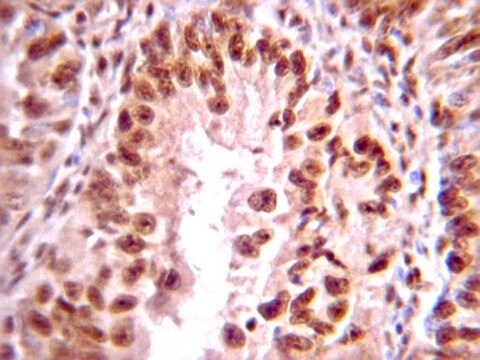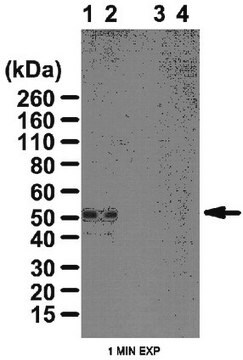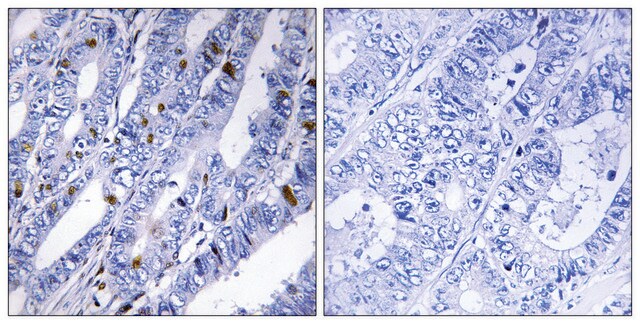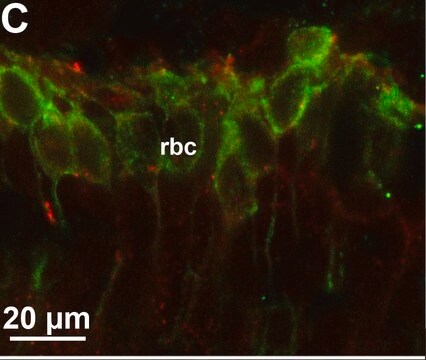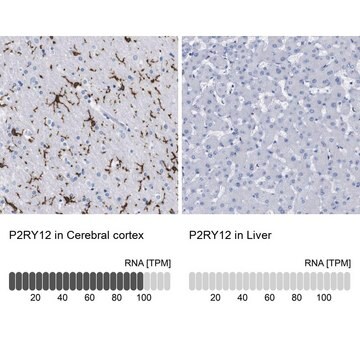ABS14
Anti-PKA RII Beta Antibody
from rabbit, purified by affinity chromatography
Synonym(e):
protein kinase, cAMP-dependent, regulatory, type II, beta, cAMP-dependent protein kinase type II-beta regulatory chain, cAMP-dependent protein kinase type II-beta regulatory subunit
About This Item
Empfohlene Produkte
Biologische Quelle
rabbit
Qualitätsniveau
Antikörperform
affinity isolated antibody
Antikörper-Produkttyp
primary antibodies
Klon
polyclonal
Aufgereinigt durch
affinity chromatography
Speziesreaktivität
mouse, human, horse
Speziesreaktivität (Voraussage durch Homologie)
bovine (based on 100% sequence homology), rhesus macaque (based on 100% sequence homology), canine (based on 100% sequence homology), chimpanzee (based on 100% sequence homology), equine (based on 100% sequence homology)
Methode(n)
western blot: suitable
NCBI-Hinterlegungsnummer
UniProt-Hinterlegungsnummer
Versandbedingung
wet ice
Posttranslationale Modifikation Target
unmodified
Angaben zum Gen
human ... PRKAR2B(5577)
Allgemeine Beschreibung
Spezifität
Immunogen
Anwendung
Zelluläre Signaltransduktion
Kinasen & Phosphatasen
Qualität
Western Blot Analysis: 0.5 µg/mL of this antibody detected PKA RII Beta on 10 µg of human brain tissue lysate.
Zielbeschreibung
Physikalische Form
Lagerung und Haltbarkeit
Hinweis zur Analyse
Human brain tissue lysate
Sonstige Hinweise
Haftungsausschluss
Sie haben nicht das passende Produkt gefunden?
Probieren Sie unser Produkt-Auswahlhilfe. aus.
Lagerklassenschlüssel
12 - Non Combustible Liquids
WGK
WGK 1
Flammpunkt (°F)
Not applicable
Flammpunkt (°C)
Not applicable
Analysenzertifikate (COA)
Suchen Sie nach Analysenzertifikate (COA), indem Sie die Lot-/Chargennummer des Produkts eingeben. Lot- und Chargennummern sind auf dem Produktetikett hinter den Wörtern ‘Lot’ oder ‘Batch’ (Lot oder Charge) zu finden.
Besitzen Sie dieses Produkt bereits?
In der Dokumentenbibliothek finden Sie die Dokumentation zu den Produkten, die Sie kürzlich erworben haben.
Unser Team von Wissenschaftlern verfügt über Erfahrung in allen Forschungsbereichen einschließlich Life Science, Materialwissenschaften, chemischer Synthese, Chromatographie, Analytik und vielen mehr..
Setzen Sie sich mit dem technischen Dienst in Verbindung.